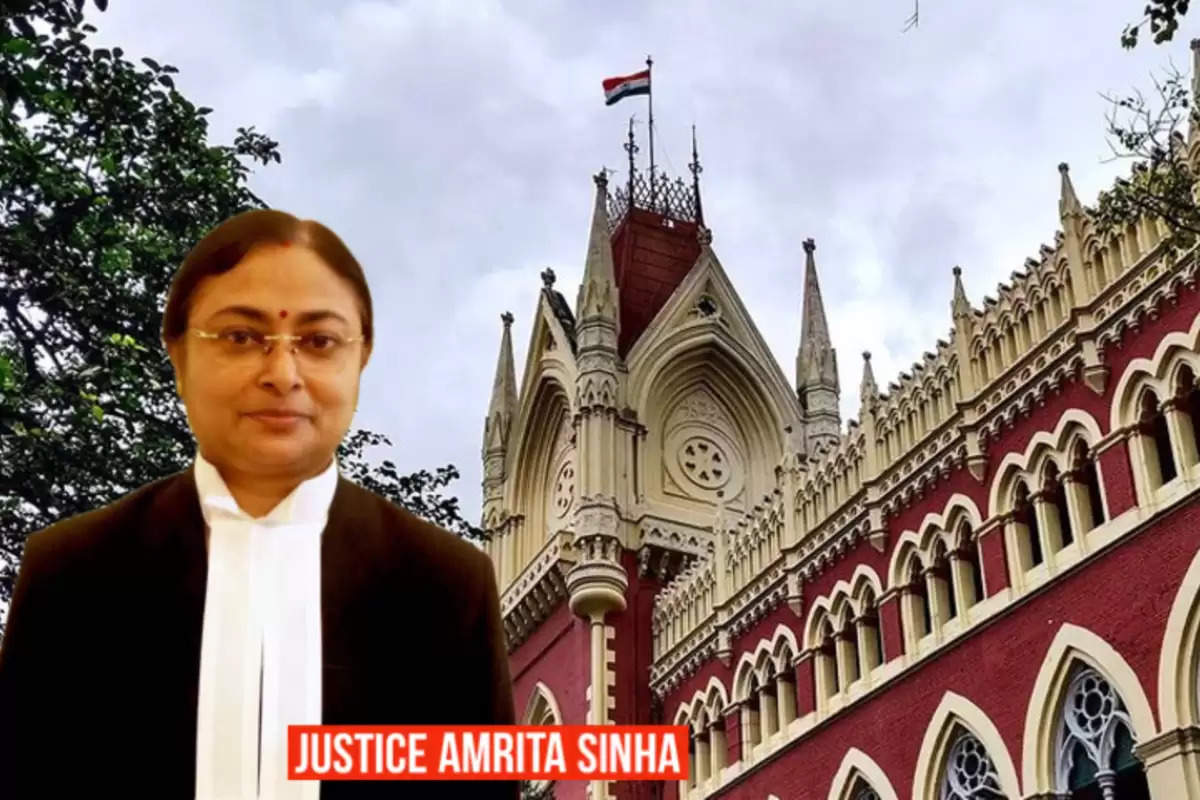Panchayat election violence: According to the Calcutta High Court, winning an uncontested election denies voters their freedom to choose.

The Calcutta High Court stated on Monday that being elected without a contest deprives voters of their freedom of choice and directed the West Bengal State Election Commission (SEC) to look into claims that candidates' names who had planned to run in the upcoming panchayat elections in the Bhangore district had been abruptly removed from the final list of candidates. [Moselma Begum and ors v. The State of West Bengal & Ors; Beshaka Mondal & Ors v. The State of West Bengal & Ors]
Because India is a democratic nation, Justice Amrita Sinha emphasised, individuals have the freedom to select the representative or candidate of their choice. She noted that it is inferred that "everything is not right" in elections if there are no opposing candidates.
"Being elected without a race reduces the electors' ability to exercise their vote. Even when there is a candidate who wants to run for office but has been rejected, it suggests that something is wrong with the process and that the gaps in it need to be filled right away. To preserve democracy, all prospective candidates should be allowed to address the electorate, the court ruled.
The Court also observed that those in authority often oppress and dominate the populace in order to maintain their position of authority. A candidate "ought not to be allowed to win on a walkover from the contesting candidate, though."
There is no credit for winning unopposed, therefore the candidates who are running should be prepared to face the electorate. The Commission should conduct itself impartially and avoid taking sides during the election... No one, after all, has a guaranteed right to an uncontested election. A candidate who files his nomination is aware that he will be up against other candidates for a given seat."
The ruling made clear that election campaigns should be fair and that dishonest tactics like delaying or impeding a potential candidate from completing nomination papers should not be used.
People from the Rashtrya Secular Majlis Party (RSMP) and the Communist Party of India (Marxist), among others, filed petitions with the court, alleging that they were subjected to violence while attempting to submit nominations.
The Court was informed that there was some delay in filing the nominations as a result of the commotion caused, purportedly by agents of the State's dominant political party (Trinamool Congress Party). Yet, their nominations were initially approved until they were unceremoniously dropped from the final list of contenders.
The SEC has now been mandated by the Court to investigate the accuracy of these claims and take the required corrective action by June 28. The Court further stated that the petitioner-candidates should be allowed to run in the elections if the SEC determines that their names were incorrectly erased
In her ruling, Judge Sinha further noted that the High Court is currently dealing with a scenario that is unprecedented in that candidates who had done nothing wrong had been forcibly stopped from submitting their nominations on time by threats and obstruction.
The Court questioned whether the members and supporters of the ruling party who are accused of obstructing alternative political candidates should be permitted to profit from their actions in such a circumstance.
"Would doing the same not be construed as tolerating the ruling disposition's illegal or arbitrary action? Why will the candidates who sow discord and fear in the community be allowed to gain an advantage over those who can't match their use of terror tactics? Will doing so not be considered interfering with the free and fair
The Court took note of a number of cases where the same charges of violence, assault, arson, murder, threats of rape, etc. were made throughout the process of submitting nominations in particular constituencies.
Although though she accepted that the High Court's authority in election-related concerns was limited, Judge Sinha continued to query whether it could remain silent in such situations.
She said, "A Constitutional Court cannot be viewed as being so helpless as to fail to rise to the occasion, stop the commission of injustice, and assist in the administration of justice."
"Can the Constitutional Court close its eyes when there are clear examples supporting the claim that there were genuine and legitimate reasons for the potential candidates' inability to submit their nomination papers within the allotted time period? Will that not taint the open and transparent electoral process? Can the same be considered to be true democracy? Will the same not constitute a violation of a candidate's legal right to run for office?
Judge Sinha noted that if such matters are left unresolved and such illegalities are permitted to become legalised, people may lose interest in elections.
.
.png)